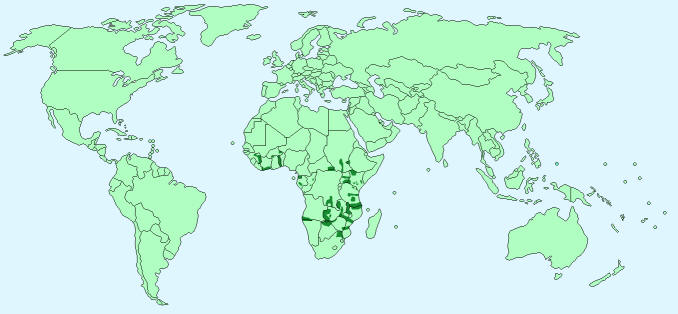Hippopotamus

Scientific Name -Hippopotamus amphibius
Classification – Ungulate
Gender Names – Male – bull; Female – cow; baby – calf
Collective Noun – A bloat
Average Height – 150 cm (60 inches)
Average Length – 4 metres (13 feet)
Average Weight – 3,000 kg (6500 lbs)
Top Speed – 40 km/h (25 mph)
Life Expectancy – 40 years
Mating Season – dry season
Pregnancy – 224 – 259 days
Special Features – A hippopotamus can stay underwater for about 15 minutes. Their name literally means ‘water horse’. They are commonly referred to as hippos.
Family Unit – Hippopotamuses live in medium sized groups of about 15. The groups are made up of mainly females and young. The group often have a dominant male. Hippos are territorial and will chase off any other hippos invading their territory.
 Geographical Distribution – West and East Central Africa
Geographical Distribution – West and East Central Africa
World Population – 125,000 – 250,000 (estimate)
Conservation Status – Vulnerable
Natural Habitat – grassland rivers and lakes
Diet – herbivore
Predators -Calves are in danger from lions, hyenas, and crocodiles. The adult hippopotamus is usually too much for most predators to handle
Harvard Reference for this page:
Heather Y Wheeler. (2015). Hippopotamus. Available: https://www.naturalhistoryonthenet.com/Mammals/hippopotamus.htm. Last accessed Monday, July 18, 2016
Mammals Pages
Features
Classification
Mammals A – Z
